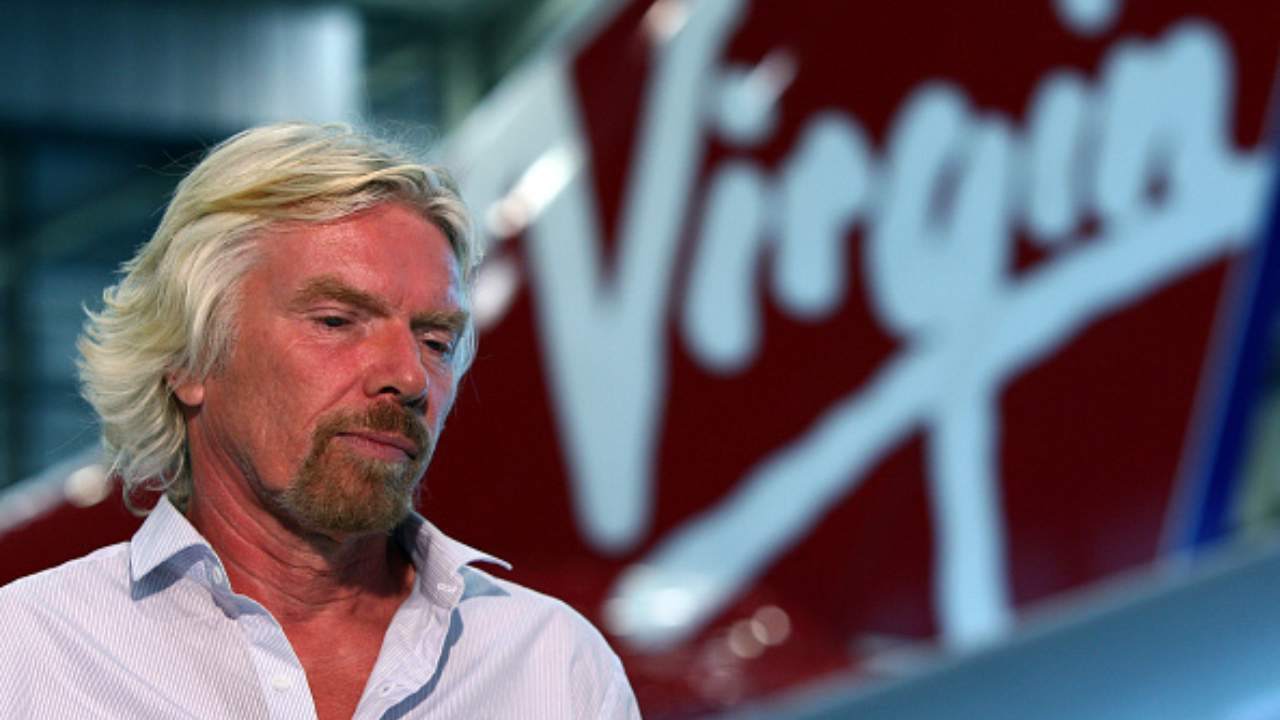Billionaire Richard Branson is scoping out new business opportunities amid coronavirus fallout

A few minutes every morning is all you need.
Stay up to date on the world's Headlines and Human Stories. It's fun, it's factual, it's fluff-free.
Unlike some billionaires, whose net worth has grown by the tens of billions during the pandemic, Sir Richard Branson has not been so fortunate as the coronavirus pandemic has led to the potential collapse of his businesses.
As a result of the coronavirus pandemic, Branson’s Virgin Group Ltd., with many of its holdings connected to leisure and international travel, has suffered markedly. Branson’s Virgin Atlantic airline filed for bankruptcy in August this year, after previously announcing thousands of job cuts amid a wider restructuring aimed at cutting costs.
Now the billionaire airline and leisure mogul is seeking out new opportunities to recoup his losses. Branson seems to have found one in the investment industry’s hottest trend – SPACs. Branson himself is hoping to raise some US$460 million via a SPAC, which will then be used to acquire a new business and merge it with his Virgin Group empire.
The coronavirus slump
Unlike some billionaires, whose net worth has grown by the tens of billions during the pandemic, Sir Richard Branson has not been so fortunate as the coronavirus pandemic has led to the potential collapse of his businesses.
Paralleling the industry wide chaos airlines are facing, Branson’s Virgin Group empire has suffered significant dislocation as a result of the pandemic and the subsequent collapse in international travel.
With the collapse of international travel, Branson’s Virgin Atlantic was placed under immense difficulty. In one open letter, the British billionaire argued that his airline needed immediate government support.
“The reality of this unprecedented crisis is that many airlines around the world need government support and many have already received it,” Branson wrote, in a plea for a US$640 million loan from either the British or Australian government.
The billionaire also pledged to leverage his private island in the British Virgin Islands, Necker Island, where he has lived income tax-free for over a decade, so he could “raise as much money against the island as possible to save as many jobs as possible.”
Some observers were critical of Branson’s requests for a loan, given his personal fortune, with Diane Abbott, a Labour Party MP for Hackney North, a London borough, tweeting that “Branson has not paid tax in this country for 14 years. On no account should he get a taxpayer bailout, loan or otherwise.”
In May, Branson’s international airline Virgin Atlantic announced some 3,000 job cuts and ceased operating from London’s Gatwick airport.
Virgin Atlantic’s chief executive officer, Shai Weiss, reflected that the airline had “weathered many storms since our first flight 36 years ago, but none has been as devastating as Covid-19,” with job cuts an unfortunate necessity so as to return to profitability and stability in 2021.
Likewise, in order to save Atlantic’s operations without a government bailout, Branson sold a US$500 million stake in Virgin Galactic in May, his own personal space tourism business that had been founded in 2004.
The sale would cut Virgin Group’s stake in the business by nearly a quarter, with the company stating that it intended to use “any proceeds to support its portfolio of global leisure, holiday and travel businesses that have been affected by the unprecedented impact of Covid-19.”
Branson’s space tourism business has also had a difficult 2020 alongside the sell off of a significant portion of Virgin Group’s stake, with its first rocket launch from a modified Boeing 747 jet named “Cosmic Girl” ending in failure, with the rocket disintegrating before making its way into space.
New opportunities?
Despite the difficulties brought by the coronavirus pandemic and its financial fallout, Branson is already looking ahead toward new business opportunities.
The British billionaire now intends to found a SPAC – a special purchase acquisition company – according to filings with the Securities and Exchange Commission.
A SPAC, otherwise known as a “blank check company” – is a company with no operating history, whose sole purpose is to raise capital to acquire another company through a merger.
Branson’s reported SPAC adds to a 2020 that has seen the investment vehicle’s resurgence. This year alone there have been 112 reported IPOs via a SPAC, as reported by SPACInsider. In 2019, the figure was lower, with around 59 SPAC acquisitions for the entirety of the year.
Branson is not the only billionaire riding the wave of the SPAC’s recent resurgence. Reid Hoffman, co-founder of LinkedIn, and Mark Pincus, founder of the game developer Zynga, have launched the Reinvent Technology Partners SPAC, which aims to raise US$600 million and posted the biggest one-day share price gains of any SPAC this year.
In July, Bill Ackman’s Pershing Square Tontine SPAC was the largest blank-check fund to date. Launched this year, the SPAC had a US$4 billion target to raise.
Though the field of SPACs appears a savvy move right now given their recent resurgence, the move is somewhat of a departure for Branson who has typically founded his own business ventures, not purchased those founded by others.
Have a tip or story? Get in touch with our reporters at tips@themilsource.com




Comments ()